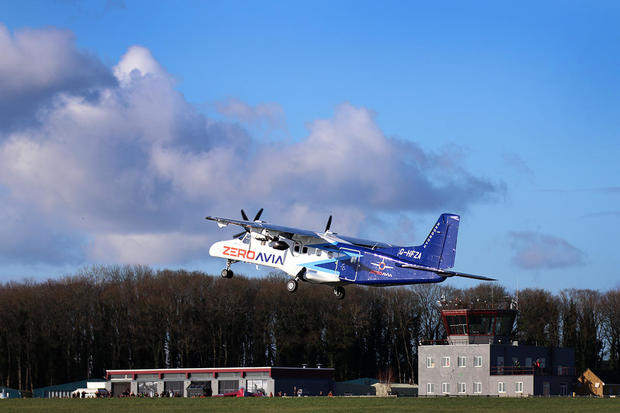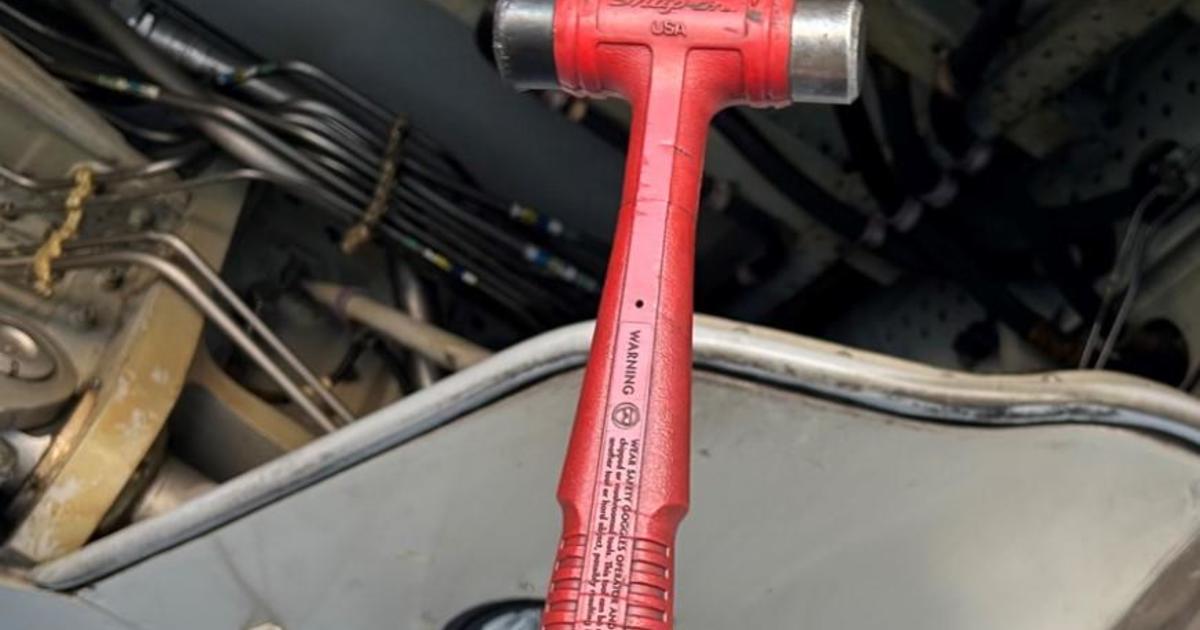Aviation startup ZeroAvia flies largest ever hydrogen-electric aircraft
A startup company made aviation history Thursday when it successfully flew the largest ever hydrogen-electric powered aircraft, which could pave the way for less environmentally harmful flights.
ZeroAvia's 19-seat plane, called the Dornier 228, took off from Cotswold Airport in Gloucestershire, U.K., on a flight lasting 10 minutes. Retrofitted with a prototype hydrogen-electric powertrain, it performed as expected and marks a major milestone for the future of zero-emission aviation, according to the company.
ZeroAvia counts commercial carriers, including American and United Airlines, among its investors, as the aviation industry — one of the world's most pollutive — invests in technology to decarbonize air travel. Hydrogen is considered among the most promising alternate fuel sources, and Thursday's demonstration marks a major step forward in ZeroAvia's goal of operating commercial routes with its technology by 2025.
"This is a major moment, not just for ZeroAvia, but for the aviation industry as a whole, as it shows that true zero-emission commercial flight is only a few years away," ZeroAvia founder and CEO Val Miftakhov said in a statement Thursday. "The first flight of our 19-seat aircraft shows just how scalable our technology is and highlights the rapid progress of zero-emission propulsion."
The company's customers have pre-ordered 1,500 engines, which it expects will be delivered in 2025. The engine prototypes have received experimental certificates from both the U.K.'s Civil Aviation Authority as well as the Federal Aviation Administration in the U.S. ZeroAvia is also working on a powertrain that can fly aircraft with up to 90 seats.
"This flight opened the gate and served as important proof-point that hydrogen-electric is viable, not just on the ground but also in the air, and it is now just a matter of getting certification and putting it in commercial operations," ZeroAvia Chief Commercial Officer Sergey Kiselev told CBS MoneyWatch. "We proved that it's possible to fly larger aircraft than what we've done so far, which has great commercial implications."
United, which has ordered 50 hydrogen-electric engines from ZeroAvia, sees the tech as an integral part of its sustainability strategy and an important alternative to sustainable aviation fuel, which is produced from waste resources.
"We have invested in hydrogen-electric aircrafts because it's going to take a portfolio of solutions to decarbonize air travel," Michael Leskinen, president of United Airlines Ventures, the airline's corporate venture fund that invests in emerging companies, told CBS MoneyWatch.
He envisions using ZeroAvia's technology to power the airline's short-haul flights in the 500-mile range on aircraft with up to 76 seats. Because the hydrogen-electric planes require less maintenance and are more cost-efficient than traditional systems, ZeroAvia's innovations could also potentially help the airline restore service in smaller regions where it's been cut.
"A lot of small cities have lost service because of the cost, and we think that these technologies will allow United to bring back more frequent service and service to airports that don't have any service today," Leskinen said.





